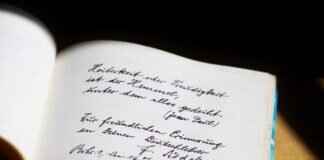This article delves into the best practices, products, and techniques for achieving and maintaining a radiant, white smile, highlighting the importance of dental health and aesthetics. A bright smile not only enhances your appearance but also boosts your confidence. Understanding how to care for your teeth is essential for achieving long-lasting results.
What Causes Teeth Discoloration?
Teeth discoloration can be caused by various factors, including:
- Food and Beverages: Items like coffee, tea, and red wine can lead to staining.
- Tobacco Use: Smoking or chewing tobacco contributes significantly to yellowing teeth.
- Age: As we age, the enamel on our teeth wears down, revealing the darker dentin underneath.
- Medications: Certain antibiotics and medications can cause discoloration as a side effect.
How to Prevent Teeth Staining?
Preventive measures can significantly reduce the likelihood of teeth staining. Here are some practical tips:
- Limit Staining Foods: Be mindful of your diet and reduce the intake of staining foods.
- Drink Water: Rinsing your mouth with water after consuming staining beverages can help minimize their effects.
- Use a Straw: When drinking beverages like soda or juice, using a straw can help keep the liquid away from your teeth.
Dietary Choices for Whiter Teeth
Choosing the right foods can play a crucial role in maintaining a bright smile. Consider the following:
- Foods to Avoid: Limit consumption of coffee, red wine, and dark berries.
- Foods That Help Maintain Whiteness: Crunchy fruits and vegetables, like apples and carrots, can naturally clean teeth and promote oral health.
Oral Hygiene Practices for a Brighter Smile
Good oral hygiene is vital for maintaining a white smile. Regular brushing, flossing, and dental check-ups are essential. Dentists recommend:
- Brushing Twice Daily: Use fluoride toothpaste to effectively remove plaque and prevent stains.
- Floss Daily: Flossing helps remove food particles and plaque from between teeth.
- Regular Dental Visits: Schedule check-ups at least twice a year for professional cleanings.
What Are the Best Whitening Products?
An array of teeth whitening products is available on the market, including:
- Whitening Toothpastes: These can help remove surface stains but may not provide dramatic results.
- Whitening Strips and Gels: These products offer more noticeable results and are easy to use at home.
Are Professional Whitening Treatments Worth It?
Professional whitening treatments can yield immediate results. Consider the pros and cons:
- In-Office Whitening Procedures: These treatments are quick and effective, often providing results in one visit.
- Custom Take-Home Kits: Dentists often provide personalized kits that can be more effective than over-the-counter options.
How to Maintain Your White Smile?
Once you achieve a brighter smile, maintaining it requires effort. Here are some tips:
- Regular Dental Check-Ups: Routine visits help keep your teeth healthy and white.
- At-Home Maintenance Tips: Incorporate whitening toothpaste and avoid staining foods.
What Are the Risks of Teeth Whitening?
While teeth whitening is generally safe, there are potential risks involved. Possible side effects can include:
- Tooth Sensitivity: Some individuals may experience increased sensitivity after whitening treatments.
- Gum Irritation: Whitening products can irritate the gums if not used correctly.

What Causes Teeth Discoloration?
Teeth discoloration is a common concern that affects many individuals, often impacting their confidence and overall appearance. Understanding the various factors that contribute to this issue is crucial for effective treatment and prevention. This section explores the common culprits behind dull or stained teeth, shedding light on how lifestyle choices, dietary habits, and even genetics can play a significant role in the color of your smile.
- Extrinsic Stains: These stains occur on the surface of the teeth and are typically caused by external factors. Common offenders include:
- Coffee and Tea: Both beverages contain tannins, which can lead to staining over time.
- Red Wine: The rich pigments in red wine can easily adhere to tooth enamel, causing discoloration.
- Colored Foods: Foods such as berries, beets, and sauces can leave stains if consumed frequently.
- Intrinsic Stains: Unlike extrinsic stains, intrinsic stains originate from within the tooth. They can be caused by:
- Medications: Certain antibiotics, like tetracycline, can cause discoloration if taken during childhood.
- Fluorosis: Excessive fluoride during childhood can lead to white spots or staining on teeth.
- Dental Trauma: Injuries to teeth can cause internal bleeding, resulting in darkening.
- Age: As we age, the enamel on our teeth naturally wears down, revealing the yellowish dentin beneath. This process can lead to a duller smile.
- Genetics: Some individuals may be genetically predisposed to have thicker or thinner enamel, influencing how susceptible their teeth are to staining.
- Poor Oral Hygiene: Inadequate brushing and flossing can lead to plaque buildup, which can contribute to discoloration. Regular dental cleanings are essential for maintaining a bright smile.
By being aware of these factors, individuals can take proactive steps to minimize the risk of teeth discoloration. Making informed choices regarding diet, oral hygiene, and lifestyle can significantly impact the brightness of your smile. Regular dental visits and professional cleanings will also help keep your teeth looking their best, ensuring that you maintain a radiant, confident smile for years to come.

How to Prevent Teeth Staining?
Maintaining a bright, white smile is not just about occasional whitening treatments; it involves consistent preventive measures that can significantly lower the chances of teeth staining. By adopting certain lifestyle changes and habits, you can keep your teeth looking their best.
- Limit Staining Foods and Beverages: Some foods and drinks are notorious for causing teeth discoloration. Coffee, tea, red wine, and dark berries are among the biggest culprits. Consider reducing your intake of these items or rinsing your mouth with water after consuming them to minimize their staining effects.
- Opt for a Straw: When indulging in beverages that are likely to stain, such as soda or iced coffee, using a straw can help limit direct contact with your teeth. This simple trick can significantly reduce the risk of discoloration.
- Incorporate Crunchy Fruits and Vegetables: Foods like apples, carrots, and celery can act as natural toothbrushes. Their crunchy texture helps scrub away plaque and food particles, contributing to a brighter smile while also promoting overall oral health.
- Maintain Excellent Oral Hygiene: Brushing your teeth at least twice a day and flossing daily are crucial steps in preventing stains. Use a fluoride toothpaste, as it not only helps in whitening your teeth but also strengthens enamel.
- Consider Whitening Toothpaste: Whitening toothpaste can be an effective tool in your dental care arsenal. These products contain mild abrasives and chemical agents that aid in removing surface stains without damaging your enamel.
- Stay Hydrated: Drinking plenty of water throughout the day not only keeps you hydrated but also helps wash away food particles and bacteria that can lead to staining. Aim to drink water after consuming any staining foods or drinks.
- Regular Dental Check-Ups: Visiting your dentist for routine cleanings is essential. Professional cleanings can remove stubborn stains and tartar buildup that regular brushing may miss, keeping your smile bright.
Implementing these practical tips can make a significant difference in the longevity of your bright smile. By being mindful of your dietary choices, maintaining excellent oral hygiene, and scheduling regular dental visits, you can effectively reduce the risk of teeth staining. Remember, a little effort goes a long way in achieving and maintaining a radiant smile.
Dietary Choices for Whiter Teeth
Maintaining a bright smile is not just about good oral hygiene; your diet plays a crucial role in the color and health of your teeth. Certain foods and beverages can lead to discoloration, while others can help promote a whiter smile. In this section, we will explore which items to avoid and which can enhance your dental aesthetics through mindful eating.
What Foods and Beverages Cause Teeth Staining?
Many popular foods and drinks can contribute to teeth staining. Here’s a list of the most notorious offenders:
- Coffee: This beloved beverage contains tannins that can easily stain teeth over time.
- Tea: Similar to coffee, dark teas can lead to discoloration due to their high tannin content.
- Red Wine: The deep pigments in red wine are known for their staining properties.
- Sodas: Both dark and light sodas can erode enamel, making teeth more susceptible to stains.
- Berry Fruits: While healthy, berries like blueberries and blackberries can leave behind pigments that stain teeth.
Which Foods Can Help Maintain Whiteness?
On the flip side, certain foods can naturally help keep your teeth looking their best. Consider incorporating the following into your diet:
- Crunchy Fruits and Vegetables: Apples, carrots, and celery can act as natural toothbrushes, helping to scrub away plaque and surface stains.
- Dairy Products: Cheese, yogurt, and milk contain calcium and phosphates that can help remineralize and strengthen enamel.
- Strawberries: Surprisingly, strawberries contain malic acid, which can help remove surface stains.
- Water: Staying hydrated and rinsing your mouth with water after consuming staining foods can minimize their effects.
Mindful Eating Habits for a Brighter Smile
In addition to choosing the right foods, practicing mindful eating can significantly impact your dental health. Here are some tips:
- Limit Staining Foods: While it’s not necessary to eliminate your favorite foods entirely, moderation is key. Try to limit your intake of staining beverages and foods.
- Rinse Immediately: After consuming staining foods or beverages, rinse your mouth with water to help wash away pigments.
- Use a Straw: For drinks like coffee or soda, consider using a straw to minimize contact with your teeth.
- Chew Sugar-Free Gum: Chewing gum can help stimulate saliva production, which naturally cleanses the mouth and can help reduce staining.
By being mindful of your dietary choices, you can enhance your chances of maintaining a bright and healthy smile. Remember, while certain foods can stain your teeth, others can help keep them looking their best. A combination of good oral hygiene and a smart diet can be your best defense against discoloration.
Foods to Avoid
When it comes to maintaining a bright and radiant smile, understanding teeth discoloration is crucial. Certain foods and drinks have the potential to stain teeth, leading to unwanted discoloration over time. This section will delve into the most notorious offenders that should be limited in your diet to preserve your pearly whites.
Many people are unaware that their daily dietary choices can significantly impact the color of their teeth. Here are some of the most common culprits:
- Coffee: This popular beverage is notorious for its ability to stain teeth due to its high acidity and dark pigments. Regular consumption can lead to a gradual yellowing of your smile.
- Red Wine: While many enjoy a glass of red wine, its deep color and tannins can cling to tooth enamel, causing noticeable discoloration over time.
- Tea: Similar to coffee, black tea can also stain teeth. The tannins present in tea are responsible for this effect, making it a less-than-ideal choice for those seeking a white smile.
- Colas and Dark Sodas: These sugary drinks not only contribute to cavities but also contain colorings that can lead to staining. Their acidity can also erode enamel, making teeth more susceptible to discoloration.
- Berries: While fruits like blueberries and blackberries are healthy, their rich pigments can lead to staining if consumed in excess. Moderation is key.
- Curry and Soy Sauce: These flavorful additions to many dishes can leave behind stubborn stains due to their intense colors.
- Hard Candies and Sweets: Dark-colored candies can leave residue on your teeth, leading to discoloration. Additionally, the sugar content can contribute to tooth decay.
It’s important to note that while these foods and drinks can lead to staining, moderation and proper oral hygiene can help mitigate their effects. Here are some tips to consider:
- Rinse Your Mouth: After consuming any of these staining foods or drinks, rinse your mouth with water to help wash away residues.
- Use a Straw: For beverages like coffee or soda, using a straw can minimize contact with your teeth.
- Maintain Good Oral Hygiene: Regular brushing and flossing can help remove surface stains and prevent them from setting in.
In conclusion, being aware of the foods and drinks that can stain your teeth is the first step towards maintaining a whiter smile. By limiting your intake of these offenders and adopting good oral hygiene practices, you can keep your teeth looking bright and healthy for years to come.
Foods That Help Maintain Whiteness
When it comes to achieving a bright, white smile, dietary choices play a crucial role. Certain foods not only help in maintaining the natural whiteness of your teeth but also promote overall oral health. This section will explore various crunchy fruits and vegetables that can assist in keeping your smile radiant.
- Apples: Often referred to as nature’s toothbrush, apples are high in fiber and have a crunchy texture that helps scrub away plaque and food particles from teeth. Their natural acidity can also help in reducing stains.
- Carrots: Raw carrots are another excellent choice. Their crisp texture stimulates saliva production, which is essential for neutralizing acids that can lead to tooth decay and discoloration.
- Celery: This hydrating vegetable acts similarly to apples and carrots. Chewing celery can help remove food debris and plaque, promoting a cleaner mouth and whiter teeth.
- Strawberries: Surprisingly, strawberries contain malic acid, a natural enamel whitener. While they are soft, incorporating them into your diet can brighten your smile over time.
- Pineapple: Pineapple contains bromelain, an enzyme that can help break down stains on teeth and reduce plaque buildup, contributing to a brighter smile.
- Broccoli: Eating raw broccoli can be beneficial for your teeth. Its high iron content creates a protective barrier on the enamel, which can help prevent staining from other foods.
- Oranges: While citrus fruits are acidic, eating them in moderation can stimulate saliva production, which is vital for maintaining oral health and neutralizing harmful bacteria.
Incorporating these foods into your daily diet can significantly contribute to maintaining the whiteness of your teeth. However, it’s essential to remember that moderation is key, especially with acidic fruits. Pairing these foods with good oral hygiene practices, such as regular brushing and flossing, will yield the best results in keeping your smile bright and healthy.
Additionally, staying hydrated by drinking plenty of water can help wash away food particles and reduce the risk of stains. A balanced diet rich in vitamins and minerals can also support overall dental health, ensuring that your teeth remain strong and white.
By making conscious choices about the foods you consume, you can take proactive steps towards achieving and maintaining a stunningly white smile. So, the next time you’re planning your meals, consider adding these crunchy, nutritious options to your plate!
Oral Hygiene Practices for a Brighter Smile
Achieving and maintaining a bright, white smile goes beyond the occasional whitening treatment; it requires a commitment to good oral hygiene practices. This section will explore essential habits that contribute to a radiant smile, focusing on the importance of regular brushing, flossing, and dental check-ups.
Why is Regular Brushing Important?
Brushing your teeth at least twice a day is fundamental for effective oral hygiene. This daily routine helps to remove food particles and plaque, which can lead to tooth decay and gum disease if left unchecked. Use a fluoride toothpaste and a soft-bristled toothbrush to gently clean all surfaces of your teeth. Remember to brush for at least two minutes, ensuring that you reach the back teeth where plaque tends to accumulate.
How Does Flossing Contribute to Oral Health?
Flossing is often overlooked but is equally vital for maintaining a bright smile. It removes debris and plaque from between teeth and below the gum line, areas that a toothbrush may miss. Incorporating flossing into your daily routine can significantly reduce the risk of cavities and gum disease, which can lead to discoloration of the teeth.
The Role of Dental Check-Ups
Regular visits to your dentist are crucial for maintaining oral health. During these check-ups, your dentist will perform professional cleanings to remove tartar buildup and assess your oral health. This proactive approach can help identify potential issues before they escalate, ensuring your smile remains bright and healthy.
What Are Some Additional Oral Hygiene Tips?
- Use Mouthwash: Incorporating an antibacterial mouthwash can help reduce plaque and prevent gum disease.
- Stay Hydrated: Drinking plenty of water throughout the day can help wash away food particles and bacteria.
- Limit Staining Foods: Be mindful of foods and drinks that can stain teeth, such as coffee, tea, and red wine.
- Quit Smoking: Tobacco products can severely stain teeth and contribute to gum disease.
How Can You Maintain Your Oral Hygiene Routine?
Establishing a consistent oral hygiene routine is key to achieving a brighter smile. Set reminders on your phone to brush and floss daily, and keep dental care products easily accessible. Consider keeping a travel toothbrush and floss in your bag for on-the-go maintenance.
In conclusion, good oral hygiene is essential for maintaining a white smile. By committing to regular brushing, flossing, and dental check-ups, along with adopting additional tips, you can ensure your smile remains bright and healthy for years to come. Remember, a little effort goes a long way in achieving the smile of your dreams!

What Are the Best Whitening Products?
When it comes to achieving a radiant smile, teeth whitening products play a crucial role. With numerous options available, it can be overwhelming to determine which products are most effective. This section delves into the most popular whitening options, highlighting their benefits and helping you make informed choices.
An array of teeth whitening products is available on the market today, each with varying effectiveness and application methods. Understanding these options can help you choose the best fit for your needs.
Whitening toothpastes are a popular choice for those seeking a simple addition to their daily routine. These products typically contain mild abrasives and chemical agents designed to remove surface stains. While they can help maintain whiteness, their effectiveness may be limited to superficial stains. Regular use, combined with good oral hygiene practices, can contribute to a brighter smile over time.
Whitening strips and gels are another popular option, offering a more intensive whitening experience. These products usually contain hydrogen peroxide or carbamide peroxide, which penetrate the enamel to lift deeper stains. They are easy to use and can deliver noticeable results in a short period. However, it’s essential to follow the manufacturer’s instructions to avoid potential side effects such as tooth sensitivity.
LED whitening kits have gained popularity in recent years, combining the power of whitening gels with LED light technology. The light accelerates the whitening process, potentially yielding faster results. These kits are user-friendly and can be used at home, making them a convenient option for those seeking a brighter smile. However, results can vary based on individual factors, including the severity of staining and adherence to usage guidelines.
Professional whitening treatments conducted by dental professionals can provide the most dramatic results. These treatments often utilize stronger bleaching agents and advanced techniques to achieve a whiter smile in a single session. While they can be more expensive than over-the-counter options, many individuals find the investment worthwhile for the immediate and significant results.
Many dentists offer custom take-home whitening kits that provide a balance between convenience and effectiveness. These kits include custom-fitted trays and professional-grade whitening gel, allowing for a tailored approach to teeth whitening. They typically yield excellent results and are designed to minimize sensitivity compared to some over-the-counter products.
For those seeking a more natural approach, there are several natural whitening alternatives available. Ingredients like baking soda, hydrogen peroxide, and activated charcoal are often touted for their whitening properties. While some individuals report positive results, it’s essential to use these methods cautiously and consult with a dental professional to avoid potential damage to enamel.
In summary, the best whitening product for you will depend on your specific needs, budget, and desired results. Whether you opt for over-the-counter solutions or professional treatments, understanding the options available can help you achieve and maintain a bright, confident smile.
Whitening Toothpastes
When it comes to achieving a brighter smile, are often one of the first products people consider. These toothpastes are specially formulated to help remove surface stains and enhance the natural whiteness of your teeth. But how do they work, and are they truly effective?
Whitening toothpastes typically contain mild abrasives, chemical agents, or polishing agents that assist in removing stains from the surface of the teeth. The most common ingredients found in these products include:
- Hydrogen peroxide – A bleaching agent that can help lighten discoloration.
- Calcium carbonate – A mild abrasive that aids in scrubbing away stains.
- Sodium bicarbonate – Also known as baking soda, it is effective in neutralizing acids and removing surface stains.
These components work together to gently polish the enamel and lift stains caused by food, beverages, and tobacco use.
While whitening toothpastes can be effective in removing surface stains, it is important to note that they may not produce dramatic results. Studies have shown that these products can improve the whiteness of teeth, but results vary based on individual factors such as:
- Initial tooth color – Naturally darker teeth may require more intensive treatments.
- Staining agents – The type and duration of exposure to staining foods and drinks can affect results.
- Consistency of use – Regular brushing with whitening toothpaste is essential for achieving noticeable improvements.
For optimal results, it is recommended to use whitening toothpaste in conjunction with other whitening methods, such as strips or professional treatments.
While whitening toothpastes are generally safe for most individuals, overuse can lead to tooth sensitivity and enamel wear. It is crucial to follow the manufacturer’s instructions and consult with a dental professional if you experience discomfort.
With numerous options available on the market, selecting the right whitening toothpaste can be overwhelming. Here are some tips for making an informed choice:
- Look for products with the American Dental Association (ADA) Seal of Acceptance, which indicates safety and effectiveness.
- Consider your specific needs, such as sensitivity or tartar control.
- Read reviews and seek recommendations from dental professionals.
In conclusion, whitening toothpastes can be a valuable addition to your oral care routine. While they may not deliver instant results, consistent use can help enhance the brightness of your smile over time. For those seeking more significant whitening effects, combining these toothpastes with other whitening methods may yield the best results. Always consult with your dentist to determine the most suitable approach for your dental health.
Whitening Strips and Gels
have become increasingly popular as effective and convenient options for achieving a brighter smile. These products offer an accessible alternative to professional treatments, allowing individuals to whiten their teeth from the comfort of their own homes. In this section, we will explore the effectiveness of these products, their application methods, and tips for achieving optimal results.
Whitening strips are thin, flexible pieces of plastic coated with a whitening gel that contains hydrogen peroxide or carbamide peroxide. These strips adhere to the teeth and are typically worn for a specified period, usually between 30 minutes to an hour. Gels, on the other hand, come in syringes or tubes and can be applied directly to the teeth using a brush or a tray.
The effectiveness of whitening strips and gels can vary based on several factors, including the concentration of the active ingredients and the duration of use. Most studies suggest that these products can effectively lighten teeth by several shades when used consistently over a period of time. However, results may differ among individuals due to factors such as age, original tooth color, and dietary habits.
- Follow Instructions: Always adhere to the manufacturer’s guidelines for application. Overuse can lead to sensitivity or uneven results.
- Prepping Your Teeth: Brush and floss before applying whitening products to ensure that your teeth are clean and free from plaque.
- Timing is Key: For strips, ensure they are worn for the recommended time. For gels, follow the instructions regarding how long to leave the gel on your teeth.
- Avoid Staining Foods and Beverages: After whitening, steer clear of foods and drinks that can stain your teeth, such as coffee, tea, and red wine.
- Maintain Oral Hygiene: Regular brushing and flossing will help maintain your results and keep your teeth healthy.
While whitening strips and gels are generally safe, some users may experience temporary tooth sensitivity or gum irritation. It is important to discontinue use if you notice severe discomfort and consult with a dental professional if symptoms persist.
| Feature | Whitening Strips | Whitening Gels |
|---|---|---|
| Application Ease | Easy to apply and remove | Requires more precision |
| Duration of Use | Typically 30 minutes to 1 hour | Varies, often longer than strips |
| Visibility of Results | Results can be seen in a few days | Results may take longer to appear |
| Cost | Generally more affordable | Can vary widely based on brand |
Ultimately, whether you choose whitening strips or gels, both options can lead to a brighter smile when used correctly. Always consider your individual needs and preferences, and consult with a dental professional if you have any concerns about tooth sensitivity or the best whitening method for you.

Are Professional Whitening Treatments Worth It?
When it comes to achieving a brighter, whiter smile, many individuals consider professional whitening treatments offered at dental offices. These treatments promise immediate results, but are they truly worth the investment? In this section, we will explore the pros and cons of opting for professional services, helping you make an informed decision.
What Are the Benefits of Professional Whitening?
- Immediate Results: One of the most significant advantages of professional whitening is the speed at which results are achieved. Many treatments can lighten teeth several shades in just one session.
- Customized Treatment: Dental professionals tailor whitening procedures to suit individual needs, ensuring optimal outcomes based on your dental health and desired results.
- Safety and Supervision: Treatments performed by trained professionals minimize the risk of side effects, such as tooth sensitivity or gum irritation, which can occur with over-the-counter products.
- Long-Lasting Effects: Professional whitening often provides longer-lasting results compared to at-home methods, making it a worthwhile investment for many.
What Are the Drawbacks of Professional Whitening?
- Cost: Professional treatments can be significantly more expensive than over-the-counter options, which may deter some individuals from pursuing this route.
- Time Commitment: While results are quick, the process may require multiple visits, especially for more extensive treatments, which can be inconvenient for busy schedules.
- Temporary Sensitivity: Some patients experience temporary tooth sensitivity following treatment, which can be uncomfortable, although it usually subsides within a few days.
What to Expect During a Professional Whitening Session?
During your visit, the dentist will first assess your teeth and gums to determine the best approach. A protective barrier is placed on your gums, followed by the application of a whitening agent. Depending on the method used, a special light may be employed to enhance the whitening effect. The entire process typically lasts about an hour, resulting in a noticeably brighter smile.
Are Custom Take-Home Kits a Good Alternative?
In addition to in-office treatments, many dental professionals offer custom take-home whitening kits. These kits contain whitening trays specifically molded to fit your teeth, allowing for more effective and even application of the whitening gel. While results may take longer to achieve compared to in-office treatments, they provide a convenient option for those who prefer to whiten at their own pace.
Conclusion
In summary, professional whitening treatments can be a valuable option for those seeking a quick, effective solution for teeth discoloration. While they come with certain costs and considerations, the benefits often outweigh the drawbacks for individuals looking to enhance their smile. Always consult with your dentist to determine the best approach for your specific needs and to ensure a safe and satisfying whitening experience.
In-Office Whitening Procedures
When it comes to achieving a brighter smile, stand out as a premier choice. These professional treatments are designed to provide immediate and noticeable results, making them a popular option for those seeking a quick enhancement to their dental aesthetics.
During an in-office whitening session, patients can expect a well-structured and efficient process. Initially, a dental professional will assess the condition of your teeth and gums to ensure you are a suitable candidate for the treatment. Following this evaluation, the dentist will prepare your mouth by applying a protective barrier to your gums to prevent irritation from the whitening agents.
The whitening agent, often containing hydrogen peroxide or carbamide peroxide, is then applied directly to the teeth. This powerful solution works to break down stains and discoloration, leading to a significantly whiter appearance. Many dental offices utilize special lights or lasers to enhance the effectiveness of the whitening process, allowing for deeper penetration of the whitening agent.
One of the primary benefits of in-office treatments is their speed and efficiency. A typical session lasts about one hour, during which patients can relax in the dental chair while the treatment works its magic. In contrast, at-home whitening methods often require weeks of consistent application, with results that may not be as dramatic or immediate.
Moreover, in-office whitening is conducted under the supervision of a trained dental professional, ensuring that the process is safe and tailored to each individual’s needs. This professional oversight minimizes the risk of complications, such as uneven whitening or sensitivity, which can sometimes occur with at-home kits.
Another significant advantage is the ability to achieve a customized result. Dentists can adjust the concentration of the whitening agent based on the patient’s specific needs and desired outcomes. This level of personalization is a key factor that distinguishes in-office treatments from over-the-counter products.
In addition to the immediate cosmetic benefits, many patients report increased confidence and satisfaction after undergoing professional whitening. The psychological boost of having a brighter smile can enhance social interactions and overall quality of life.
However, it’s essential to note that while in-office whitening is highly effective, it is not a permanent solution. Maintaining results requires good oral hygiene practices and possibly periodic touch-ups, which can be discussed during follow-up visits with your dentist.
In summary, in-office whitening procedures offer a fast, effective, and safe means to achieve a brighter smile. With professional guidance and tailored treatments, patients can enjoy immediate results that enhance their confidence and dental aesthetics.
Custom Take-Home Kits
are becoming increasingly popular for individuals seeking a brighter smile from the comfort of their own homes. Offered by dentists, these kits provide a tailored approach to teeth whitening, ensuring that patients achieve optimal results while maintaining safety and efficacy.
But how do these custom kits work, and what advantages do they offer compared to store-bought options? Let’s explore these questions in detail.
Custom whitening kits typically include molded trays designed to fit the unique contours of your teeth. During an initial consultation, your dentist will take impressions of your teeth, creating trays that ensure even distribution of the whitening gel. This personalized approach enhances the effectiveness of the treatment, as the gel can penetrate the enamel more efficiently.
The whitening gel used in these kits usually contains a higher concentration of hydrogen peroxide or carbamide peroxide compared to over-the-counter products. This means that patients can achieve noticeable results in a shorter timeframe. Users typically wear the trays for a specified duration, often ranging from 30 minutes to a few hours, depending on the product’s strength and the dentist’s recommendations.
- Personalization: Custom kits are tailored to fit your mouth, which minimizes gel leakage and maximizes contact with your teeth.
- Effectiveness: The professional-grade whitening agents used in these kits often yield faster and more significant results than those found in retail products.
- Supervised Treatment: With a dentist’s guidance, you can receive personalized instructions and adjustments based on your progress and sensitivity levels.
- Safety: Custom kits are designed with your dental health in mind, reducing the risk of gum irritation and tooth sensitivity, which can be more common with over-the-counter products.
When you begin using a custom take-home whitening kit, it’s essential to follow your dentist’s instructions closely. Initially, you may experience some sensitivity, which is normal. However, if the discomfort persists, consult your dentist for advice on how to proceed.
It’s also important to maintain good oral hygiene during the whitening process. Regular brushing and flossing will help keep your teeth and gums healthy, ensuring that you achieve the best possible results.
In summary, custom take-home whitening kits offer a professional and effective solution for achieving a whiter smile. Their personalized nature, combined with the supervision of a dental professional, ensures that you can safely and efficiently brighten your teeth at home. If you’re considering teeth whitening, consult your dentist to see if a custom kit is the right choice for you.

How to Maintain Your White Smile?
Achieving a bright, white smile is an accomplishment that many strive for, but maintaining that brilliance requires ongoing effort and dedication. In this section, we will explore effective strategies to ensure your smile remains radiant for the long term. By incorporating these practices into your daily routine, you can enjoy the confidence that comes with a beautiful smile.
Maintaining your white smile is essential not only for aesthetic reasons but also for overall dental health. Discoloration can be a sign of underlying issues, and neglecting your oral care can lead to more significant problems. By understanding the importance of maintenance, you can take proactive steps to keep your teeth looking their best.
One of the most effective ways to maintain your white smile is by scheduling regular dental check-ups. Visiting your dentist every six months allows for professional cleanings that remove plaque and tartar buildup, which can contribute to staining. Additionally, your dentist can identify any potential issues early on, ensuring that your teeth remain healthy and bright.
- Daily Brushing: Brush your teeth at least twice a day using a whitening toothpaste. This helps to remove surface stains and prevent new ones from forming.
- Flossing: Floss daily to eliminate food particles and plaque between your teeth, which can lead to discoloration if left untreated.
- Rinsing: Use an antibacterial mouthwash to help reduce bacteria in your mouth, promoting overall oral health and reducing the risk of stains.
Your diet plays a significant role in the color of your teeth. Here are some tips to maintain your white smile through dietary choices:
- Avoid Staining Foods: Limit your intake of foods and beverages known to stain teeth, such as coffee, tea, red wine, and berries.
- Hydration: Drink plenty of water throughout the day to help wash away food particles and reduce the risk of staining.
- Crunchy Fruits and Vegetables: Incorporate crunchy fruits and vegetables like apples and carrots into your diet. These foods can naturally scrub your teeth as you chew, helping to keep them white.
Depending on your whitening method, you may want to consider occasional touch-up treatments. Over-the-counter whitening strips or gels can be effective for maintaining brightness between professional cleanings. Consult your dentist for recommendations on the best products for your specific needs.
Certain habits can contribute to teeth discoloration. Here are some to be aware of:
- Smoking: Tobacco products can lead to severe staining and should be avoided for a brighter smile.
- Grinding Teeth: If you grind your teeth, consider using a mouthguard to protect your enamel and prevent discoloration.
By implementing these strategies, you can maintain a stunning, white smile for years to come. Remember, the key to long-lasting results lies in consistent care and attention to your oral health.
Regular Dental Check-Ups
are essential for maintaining optimal oral health and preventing potential issues before they escalate. These visits allow dental professionals to perform thorough examinations, ensuring that your teeth and gums remain in excellent condition. In this section, we will explore the significance of routine dental visits, what to expect during these appointments, and how they contribute to your overall well-being.
During a typical dental check-up, your dentist will conduct a comprehensive examination of your mouth, including:
- Visual Inspection: The dentist will check for signs of cavities, gum disease, and other oral health issues.
- X-rays: These images help identify problems that may not be visible during a standard examination, such as decay between teeth or issues with the jawbone.
- Professional Cleaning: Dental hygienists will remove plaque and tartar buildup, which can lead to cavities and gum disease if left untreated.
One of the most significant benefits of regular dental visits is the early detection of problems. For instance, catching a cavity early can prevent the need for more extensive treatments like fillings or root canals. Additionally, regular cleanings help to maintain healthy gums, reducing the risk of periodontal disease, which has been linked to serious health conditions such as heart disease and diabetes.
Moreover, dental check-ups provide an opportunity for you to discuss any concerns or questions you may have about your oral health. Your dentist can offer personalized advice on maintaining good oral hygiene practices at home, including:
- Brushing Techniques: Proper brushing techniques can significantly reduce plaque buildup.
- Flossing: Daily flossing is crucial for removing food particles and preventing gum disease.
- Dietary Advice: Your dentist can suggest dietary changes that promote oral health, such as reducing sugary snacks and beverages.
In addition to the immediate benefits of check-ups, maintaining a consistent schedule of dental visits can lead to long-term savings. By preventing serious dental issues, you can avoid costly procedures in the future. Most dental professionals recommend visiting the dentist every six months, but some individuals may require more frequent visits based on their specific oral health needs.
It’s also important to note that dental visits are not solely for addressing issues. They play a vital role in enhancing your smile and boosting your confidence. A healthy, bright smile can positively impact your self-esteem and how you interact with others.
In conclusion, regular dental check-ups are a cornerstone of maintaining good oral health. They provide essential services that not only keep your teeth and gums healthy but also contribute to your overall well-being. By prioritizing these visits, you invest in a brighter, healthier future for your smile.
At-Home Maintenance Tips
Maintaining a bright and white smile is not just about achieving immediate results from whitening treatments; it also involves a dedicated effort to preserve those results over time. At-home maintenance routines are essential for prolonging the effects of whitening treatments, ensuring your smile remains radiant and healthy. Here are some practical tips to incorporate into your daily care.
- Brush Twice Daily: Regular brushing is fundamental. Use a whitening toothpaste that contains mild abrasives to help remove surface stains. Make sure to brush for at least two minutes, focusing on all areas of your mouth.
- Floss Daily: Flossing removes plaque and food particles that brushing might miss, especially between teeth. This practice not only helps maintain whiteness but also promotes overall oral health.
- Use a Mouthwash: Incorporate an anti-bacterial mouthwash into your routine. Look for products that specifically target whitening, as they can help reduce stains and freshen your breath.
- Stay Hydrated: Drinking plenty of water throughout the day can help wash away food particles and bacteria that cause discoloration. Additionally, water helps maintain saliva production, which is crucial for oral health.
- Avoid Staining Foods and Drinks: Limit the intake of foods and beverages known to stain teeth, such as coffee, tea, red wine, and dark berries. If you do consume these items, rinse your mouth with water afterward to minimize staining.
- Chew Sugar-Free Gum: Chewing gum can stimulate saliva production, which naturally cleanses the mouth and helps neutralize acids that can lead to staining.
- Use Whitening Strips as Needed: If you notice your teeth starting to lose their brightness, consider using over-the-counter whitening strips. These can help maintain your results between professional treatments.
- Regular Dental Visits: Schedule routine check-ups with your dentist for professional cleanings. These visits can help remove stubborn stains and monitor your overall dental health.
By implementing these , you can significantly enhance the longevity of your whitening treatments. Remember, consistency is key. A combination of proper oral hygiene, mindful eating habits, and regular dental care will keep your smile looking its best.

What Are the Risks of Teeth Whitening?
Teeth whitening has gained immense popularity as a means to enhance one’s smile and boost confidence. However, it is essential to be aware of the potential risks associated with this cosmetic procedure. Understanding these risks can help individuals make informed decisions and ensure a safe whitening experience.
- Tooth Sensitivity: One of the most common side effects of teeth whitening is increased tooth sensitivity. Many individuals experience discomfort when consuming hot or cold foods and beverages following treatment. This sensitivity typically subsides after a few days, but it can be uncomfortable for some.
- Gum Irritation: Whitening agents can cause irritation to the gums, especially if they come into contact with the soft tissues of the mouth. It’s crucial to follow the application instructions carefully to minimize this risk.
- Uneven Results: Depending on the method used, results can vary significantly. Over-the-counter products may not provide uniform whitening, leading to an uneven appearance. Professional treatments often yield more consistent results.
- Overuse Risks: Using whitening products too frequently can lead to enamel erosion, making teeth more susceptible to decay and sensitivity. It’s vital to adhere to recommended usage guidelines.
- Allergic Reactions: Some individuals may experience allergic reactions to the ingredients in whitening products. Symptoms can include swelling, redness, or itching in the mouth. It’s advisable to perform a patch test if you have sensitive skin or allergies.
Precautions to Consider Before Starting Treatment
Before embarking on a teeth whitening journey, consider the following precautions:
- Consult a Dentist: A thorough dental examination is crucial to identify any underlying issues such as cavities or gum disease that may complicate the whitening process.
- Choose the Right Method: Whether opting for at-home kits or professional treatments, selecting the right method based on your dental health and desired results is essential.
- Follow Instructions: Adhering to the product instructions is vital for minimizing risks. Overuse or improper application can lead to adverse effects.
- Consider Your Dental History: Individuals with a history of dental problems should be particularly cautious. Discussing your dental history with a professional can help tailor the whitening approach to your needs.
In summary, while teeth whitening can significantly enhance your smile, it is not without its risks. Being informed about potential side effects and taking necessary precautions can help ensure a safe and effective whitening experience. Always consult with a dental professional to choose the best approach for your unique dental needs.
Frequently Asked Questions
- What causes teeth discoloration?
Teeth can become discolored due to various factors, including poor oral hygiene, consumption of staining foods and drinks like coffee and red wine, and even aging. Certain medications and tobacco use can also contribute to a dull smile.
- How can I prevent teeth staining?
To keep your teeth bright, consider limiting foods and drinks that stain, maintain a rigorous oral hygiene routine, and stay hydrated. Regular dental cleanings can also help keep your smile sparkling.
- Are whitening toothpastes effective?
Yes, whitening toothpastes can help remove surface stains and improve the brightness of your smile. However, for deeper stains, you might want to explore other whitening options.
- What are the risks associated with teeth whitening?
While generally safe, teeth whitening can lead to temporary sensitivity or gum irritation. Always consult with your dentist before starting any whitening treatment to ensure it’s right for you.
- How long do whitening results last?
The longevity of whitening results varies based on individual habits. With proper care and regular dental check-ups, you can maintain your bright smile for several months to a year.















